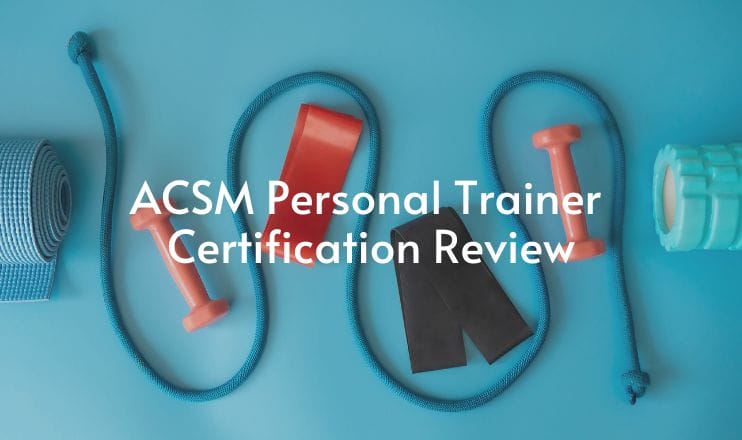Last Updated: April 25, 2024
When personal trainers want to work with special needs clients, they turn to the American College of Sports Medicine (ACSM). This science-based certification program helps prepare trainers to bring health and fitness benefits to more clients who need specialized care.
Let’s take a deeper look at ACSM and what their programs offer personal trainers like you.
What Is ACSM?
Founded in 1954, ACSM is a worldwide organization that unites over 50,0000 sports medicine and exercise science professionals around one goal: helping people live healthier through science, education, and medicine. Its strong focus on driving health and exercise research sets ACSM apart from similar groups.
About the ACSM Personal Trainer Certification
The ACSM certification helps personal trainers lead both healthy clients and those with existing medical conditions to their health and fitness goals.
If you want the flexibility to work in health clubs, medical centers, gyms, corporate events, and more, this course’s blend of practical skills and science-based curriculum is designed to get you there.
Whether you end up as a freelance trainer running your own business or an instructor working in many locations, ACSM strives to help you succeed. The ACSM Personal Trainer Certification program offers an exam content outline, resource books, quizzes, online practice tests, and study flashcards.

Pros & Cons of ACSM
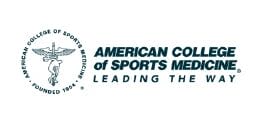
|
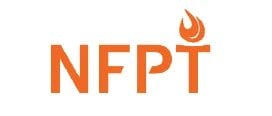
|
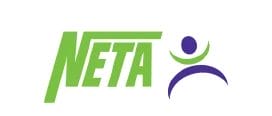
|
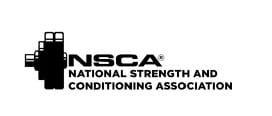
|
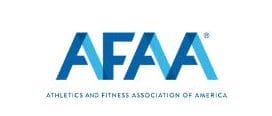
|
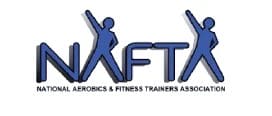
|
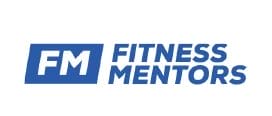
|
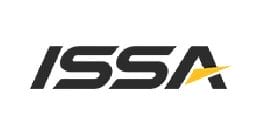
|
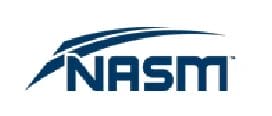
|
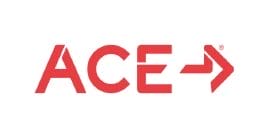
|
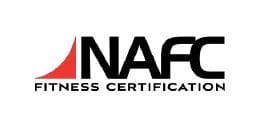
|
|
|---|---|---|---|---|---|---|---|---|---|---|---|
| ACSM | NFPT | NETA | NSCA | AFAA | NAFTA | Fitness Mentors | ISSA | NASM | ACE | NAFC | |
| Qualify |
18 years of age High school diploma or GED CPR/AED certified |
18 years of age High school diploma or GED Adhere to NFPT’s Code of Conduct |
18 years of age High school diploma or GED |
18 years of age High school diploma or GED CPR/AED certified |
18 years of age Valid photo ID CPR/AED certified Virtual testing equipment |
18 years of age High school diploma or GED CPR/AED certified First Aid certified valid photo ID |
18 years of age High school diploma or GED CPR/AED certified |
18 years of age CPR/AED certified |
High school diploma or GED CPR/AED certified |
18 years of age High school diploma or GED CPR/AED certified Valid photo ID |
18 years of age High school diploma or GED CPR/AED certified |
| Costs |
Member Price: $299 Non-Member Price: $399 Exam only: $349 |
Standard: $299 Premier: $349 Exam only: $199 |
Self-Study Workshop: $599 Self-Study Standard: $549 Exam only: $499 |
Member Price: $300 Non-Member Price: $435 |
Certification program: $499 Textbook: $79 |
✗ No prices available |
Starter: $399 Plus: $699 Pro: $899 Ultimate: $1,499 |
Fast track: $99 CPT: $994.30 Fitness Coach: $999.60 Elite Trainer: $1,256 Master Trainer: $1,749.70 |
Self-Study: $899 Nutrition Bundle: $1,798 CPT Essentials Bundle: $2,397 Exclusive Bundle: $3,295 |
Basic: $675 Plus: $745 Advantage: $975 |
Self-Study: $499 Self-Study Plus: $649 Exam only: $149 |
| Length | 3 months of prep | 60–90 days of prep | 30–45 days of prep | 6 months of prep | 3–9 months | 60–70 hours of prep for GEI | 3+ months of prep | 2–6 months of prep | 4–25 weeks of prep | 3–6 months of prep | 2–3 months of prep |
| Accredited | ✓ | ✓ | ✓ | ✓ | ✓ | ✓ GEI only | ✓ | ✓ | ✓ | ✓ | ✓ by NBFE |
| Specialty Certs | ✓ | ✗ CPT only | ✓ | ✓ | ✓ | ✓ | ✓ | ✓ | ✓ | ✓ | ✓ |
| CECs / CEUs |
45 CECs every 3 years –Option to retake and pass CPT exam –$45+ in fees |
2 CECs every year Flexible options: –Self-tests –Workshops –Seminars –CPR/AED |
20 CECs every 2 years –6 CECs must be from NETA –$75 fee |
1–6 CEUs every 3 years Flexible options: –Events –Teaching –Activities –Tests |
15 CEUs every 2 years –$99 fee –Optional one-time $399 fee + CEU discounts |
15 CEUs every 2 years –Limited information –Varies by the program –Workshops available |
2 CEUs every 2 years –$99 fee –CPR/AED certification |
2 CEUs every 2 years –CPR/AED certification –No fee for ISSA CEUs |
2 CEUs every 2 years –CPR/AED certification –One-time Recertify for Life available –Renewal fees |
2 CEUs every 2 years –$129 fee –CPR/AED certification –CEC Power Pass available |
2 NAFC credits every 2 years –20 hours of NAFC CECs –Compete a recertification application |
| Pros |
✓ CPT is good for 3 years. ✓ Known for a robust focus on special education certification. ✓ Best for trainers planning to work with clinical populations or special needs clients. ✓ Free CPT Facebook group. |
✓ CPT is good for 1 year. ✓ Receive materials to help you start and run a PT business. ✓ Free and low-cost CEC courses. ✓ No fee to submit recertification. ✓ Free online retest for the exam. ✓ Specialty CECs. |
✓ CPT is good for 2 years. ✓ Hands-on experience through workshops. ✓ Accessible for those without a degree. ✓ Programs cover a wide range of fitness and health topics. ✓ Self-taught curriculum. |
✓ CPT is good for 3 years. ✓ No fee or limit to the number of times you may attempt the exam. ✓ Known for a good curriculum and practical application for real-world use. ✓ Best for trainers looking to enter the field of strength and conditioning. |
✓ CPT is good for 2 years. ✓ The program is fairly priced. ✓ Subsidiary of the highly regarded NASM. ✓ Good for trainers wanting a self-paced course. ✓ Best for understanding group and general fitness. |
✓ GEI is good for 2 years. ✓ Good for trainers looking to get certified in Group Exercise Instruction (GEI). ✓ Largest provider of CECs in the world. ✓ Best for trainers wanting diverse and affordable specialty CECs/CEUs. |
✓ CPT is good for 2 years. ✓ The exam is easier than other programs. Only a 70% is needed to pass. ✓ Large focus on online fitness. ✓ Free resources and study materials for other CPT tests available. ✓ Best for virtual trainers. |
✓ CPT is good for 2 years. ✓ Online CPR/AED certification. ✓ Unlimited exam time and 90% of people pass. ✓ Free retests on the CPT exam. ✓ Job placement guarantee. ✓ International recognition. |
✓ CPT is good for 2 years. ✓ Most specialty courses and certifications are for CEUs. ✓ State-of-the-art digital learning platforms. ✓ NASM is highly recognized and respected. ✓ Comprehensive course materials and diverse specializations. |
✓ CPT is good for 2 years. ✓ Certification bundles available. ✓ Known for a focus on behavior change and a client-centered approach. ✓ Great for new and experienced trainers. ✓ Online learning offers flexibility. |
✓ CPT is good for 2 years. ✓ Job placement guarantee available in the Plus Program. ✓ Earn dual certifications. ✓ Count CECs to multiple certification renewals. ✓ Course material is hyper-focused and detailed. |
| Cons |
✗ Lack of in-person teaching and experiences built into the curriculum. ✗ Separate costs for study materials and exams. |
✗ Less emphasis on advanced fitness concepts. ✗ Mostly geared toward first-time trainers. ✗ Only focuses on personal training. |
✗ Study materials are limited. ✗ The exam-only option is expensive and lacks study materials. |
✗ No practice exam. ✗ Study materials range from $435 to more than $1000. ✗ CEU recert process can be confusing. |
✗ Limited to a single option. ✗ Not as widely recognized as other associations. ✗ Materials may not fully prepare you to pass the test. |
✗ No CPT is available, but there are some PT-focused CECs. ✗ Limited information about the programs is available. |
✗ Not as recognized as other programs. ✗ A small list of CECs and niche career focuses. ✗ The ultimate plan may not be worth the cost. |
✗ Not all programs are NCCA accredited but are by the DEAC. ✗ Some of the most expensive CPT programs available. |
✗ The proctored exam can be a challenge for some. ✗ Requires a significant time investment to understand materials. ✗ Costly plans. |
✗ Business skills and nutrition training courses aren’t included in the most basic program package. ✗ Not certified in the UK by REPs. |
✗ Curriculum is only self- taught, which may not be best for all learning styles. ✗ Courses start at an intermediate level, not a beginner level. |
To help you weigh the options of becoming a CPT (certified personal trainer) through ACSM, we summarized our ACSM certification review findings into pros and cons.
Pros
- The American College of Sports Medicine is accredited by the National Commission for Certifying Agencies (NCCA).
- The 3-year certificate provides more time to complete continuing education credits (CECs) before needing to recertify.
- This program offers the most robust focus on special education certifications, behavior modification skills, and non-profit personal fitness initiatives.
Cons
- Courses are on the expensive side compared to other programs.
- The curriculum lacks in-person teaching and experiences.
Vital Facts About the ACSM Personal Trainer Certification
Requirements
To qualify for the ACSM personal trainer certification program, you must:
- Be 18 years of age or older
- Have a high school diploma or GED
- Hold a valid adult CPR/AED* certificate
*Cardiopulmonary Resuscitation (CPR) / Automated External Defibrillator (AED)
Cost
The ACSM CPT exam cost varies based on membership. Pricing is as follows:
- ACSM Member Candidates: $299
- ACSM Non-Member Candidates: $399
- Re-test fee: $199
Specialized Certification Programs
ACSM offers niche training for those who have clients with special health needs. These programs require NCCA accreditation to enroll.
ACSM offers:
- Exercise is Medicine® (EIM)
- Autism Exercise Specialist
- ACSM-ACS Certified Cancer Exercise Specialist
- ACSM/NCHPAD Certified Inclusive Fitness Specialist
- CSM/NPAS Certified Physical Activity and Public Health Specialist
Continuing Education and Recertification
Your ACSM personal training certification is valid for three years. To recertify with ACSM, you’ll need to complete 45 CECs or retake and pass the certification exam. Recertification fees range from $45–$65, and you will need proof of CPR/AED certification.
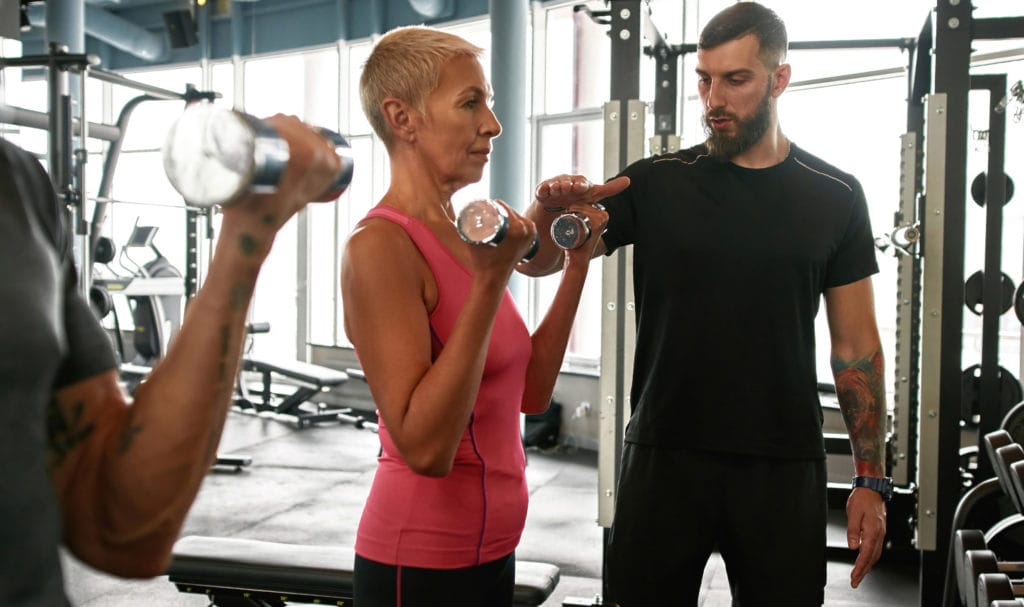
What You Can Do as an ACSM Certified Personal Trainer
Insurance Canopy recognizes ACSM as the best program for personal trainers seeking non-profit or special education certifications. ACSM knows success is in the details. That’s why they help craft specialized programs and let trainers customize their certification study plan.
Specialty certifications help trainers confidently coach clients with varying fitness abilities due to medical needs. If empowering people with cancer, chronic illnesses or diseases, autism, or physical, sensory, and cognitive disabilities to achieve their fitness goals is your calling, ACSM certification puts the most tools in your toolbox.
Boost Your Credibility With Insurance
Whether you teach online, at multiple locations, or in a private health center, you need a protection plan that works with you. For as low as $159 a year, you can buy, customize, and manage your personal trainer insurance entirely online with Insurance Canopy.
Our fitness instructor insurance policies include general and professional liability insurance and offer add-on coverages like tools and equipment or cyber liability insurance to personalize your plan. Get started in 10 minutes or less today!
Frequently Asked Questions About the ACSM Personal Trainer Certification
How Do I Get an ACSM Personal Trainer Certification?
To get an ACSM personal trainer certification, you must enroll in the certification program online, prepare for the exam by completing online courses, and meet the minimum passing standard score of 550.
Is ACSM NCCA Accredited?
Yes, ACSM is accredited by the National Commission for Certifying Agencies (NCCA).
What Ongoing Support Does ACSM Offer for Professional Development?
Personal trainers looking to stay current can pursue ACSM continuing education through free exercise professional resources. Industry news keeps trainers informed about new programs and fitness trends. Blogs, exercise technique videos, and forms cover topics from virtual training to business management.
Premium content for members of the American College for Sports Medicine includes extra training and discounts on continuing education and ACSM events.
How Does ACSM Certification Curriculum Address Trends and Advancements in Exercise Science?
ACSM makes changes regularly to reflect new findings in the fitness field and logs training material updates for members and students.
How Long Does it Take to Get ACSM Personal Training Certification?
Finishing ACSM CPT coursework and scheduling the exam generally takes 10–12 weeks or about 3 months. Since the program doesn’t include in-person teaching, you control the pace.

